Your book cover is the most important selling tool that your book has. It's therefore imperative that your cover matches your audience's...
Marketing
How to Sneak Marketing into Your Writing Schedule—and Keep Living Life While You Do!
OK, so we're well into 2019. We made it! Yay! Pat on the back. Cheers. The whole bit. We're awesome. And with a new year came new resolutions,...
How NOT to Start a Copywriting Business
In 2016 I started a copywriting business after leaving a toxic job. I spent months second guessing my work and struggled to make the improvements a...
Authors Aren’t Mute: Public Speaking Tips for Authors
This is a guest post by Simon Raybould. First things first, authors aren’t silent---are they? Here’s the thing...I’m an author too. And in the past...
What is Voice and Tone? (And Why Should You Care)?
A few weeks ago, I put together some content about voice and tone for my day job. This included information on what it is, why it matters, and how to come up with our own.
To most people this probably sounds pretty boring.
But to me, as a student of writing, it was fascinating.
It’s reinforced things I studied at university and helped me to learn how to explain the theory behind writing to people who are new to it.
Make no mistake—your voice and tone does matter.
And it influences everything.
Ready to find out more?
5 Things to Remember When Running Writing Workshops
Earlier this year, and as a representative of The Student Wordsmith, I was invited to deliver an introductory workshop to members of Nottingham Writers’ Studio. It was the first time that I had delivered one in a few months, since my days of teaching Creative Writing at Loughborough University, and (if I am being completely honest) I was a little nervous.
Throughout the workshop, I adopted a very ‘human’ and friendly approach—being open, honest, and encouraging when you’re meeting new writers with varying levels of confidence is really important—and this struck a chord with Kristina here at The Writers’ Cookbook who has since commented on the warmth in my style as a workshop leader.
While running a workshop is always going to be daunting (even if you are considered to be a seasoned pro!), this exchange reminded me that we’ve all been there. We’ve all felt nervous and like we’re about to scale an impossible mountain; whether that’s running a workshop for the first time in a while or reading in front of large group of people you know!
So, to help you through if you’re planning on running your own workshops anytime soon, we put our heads together and have compiled our top 5 things to remember when running your writing workshops.
Are You Blogging for the Wrong Reasons?
‘I hate blogging. I did it regularly for six months and got nothing out of it.’
Sound familiar?
I’ve heard lots of writers say this. And when I say ‘lots’, I mean more than half of the ones I’ve spoken to about it.
Because of their experience, they assume it’s a waste of time for them. So they give up.
But the reasons they struggle are always the same: they’re approaching it all wrong.
Let’s break down how they’re approaching it wrong (and how you could be too), and how to fix it.
4 Lessons from 4 Years of Blogging
I still can’t believe I’ve been blogging for four years. I mean, four years ago I’d only just started my first day job. I was still writing my dissertation. I’d never seen Miss Fisher’s Murder Mysteries 😱
And now…now I have a job as a content marketer. I’ve published three books (and an anthology). And I’m on my second watch of Miss Fisher in a year (some things require it).
I don’t claim to be an expert in writing. When you start calling yourself an expert, you get cocky. You stop learning. And then…you stop being an expert.
But I do know a fair bit about writing after all these years of studying and several million (yes, really) words written.
So, to celebrate The Writer’s Cookbook’s fourth birthday, here are four lessons I’ve learnt from four years of blogging.
10 Literary Techniques to use in Your Copywriting
I believe that the key ingredients of all great writing are the same.
However, many writers don’t feel this way.
Novelists often find copywriting soul-destroying and avoid it as much as possible.
But if you want to reach more people—and compel those people to purchase your books—you need to work on your copywriting.
If you don’t, you won’t create a connection with your audience and they’ll be much less likely to purchase anything from you.
The deeper the connection you create with your reader, the more likely you’ll be to compel them into action.
Here are 9 literary techniques you can use in your copywriting that prove copywriting and fiction writing aren’t so different after all.
How Not to Market a Book
There’s a tonne of advice out there about how to market a book. I have a whole category dedicated to it.
That’s because the marketing of your book is just as important—if not more important—as the content of your book.
Without a marketing plan, your book won’t reach as many readers as it could, you won’t make much (if any) money from your books, and you’ll probably lose interest in writing all together.
But the thing is, your readers won’t come to you. You have to seek them out.
Failing to actively seek out your readers is a prime example of how not to market a book. Here’s a few more book marketing no-nos.










